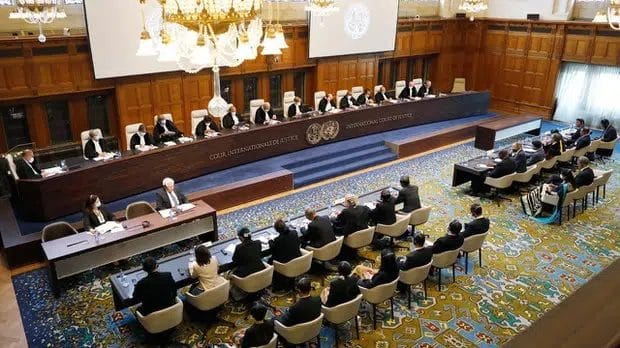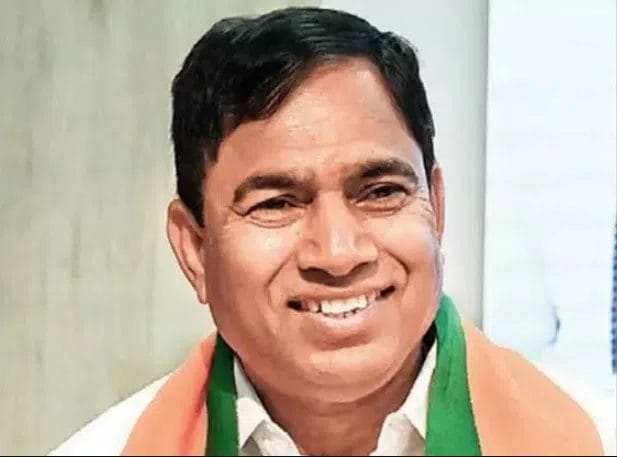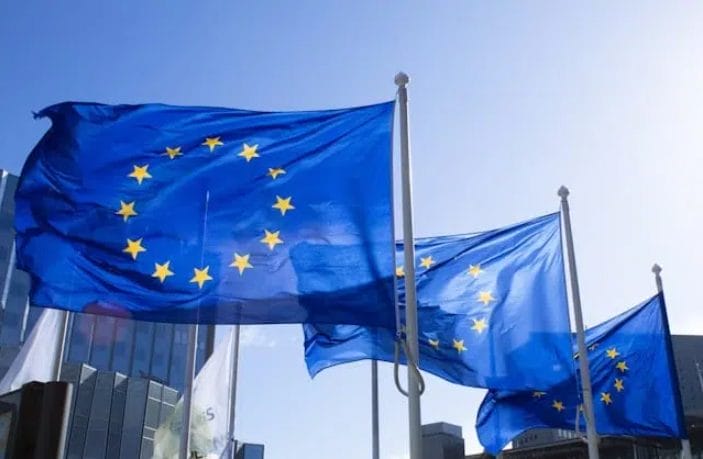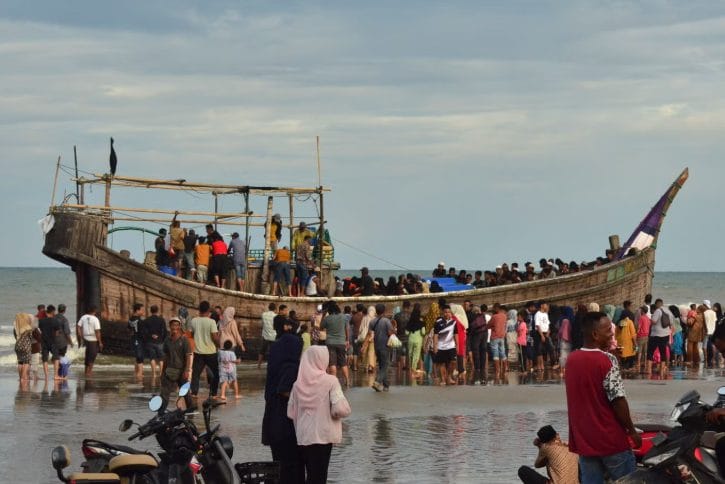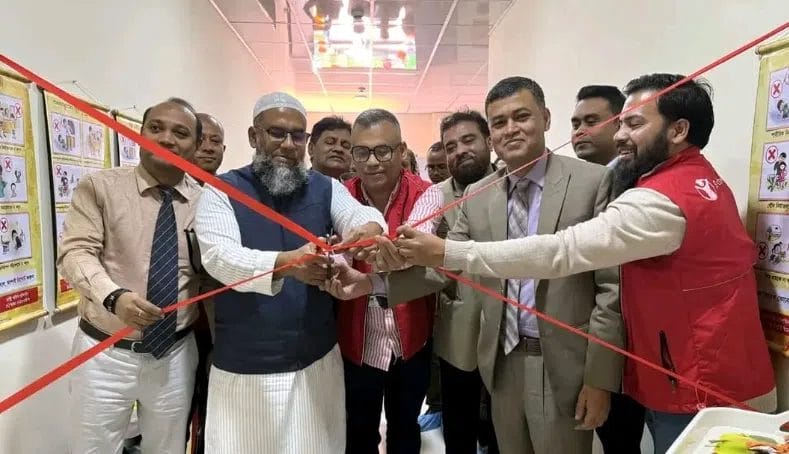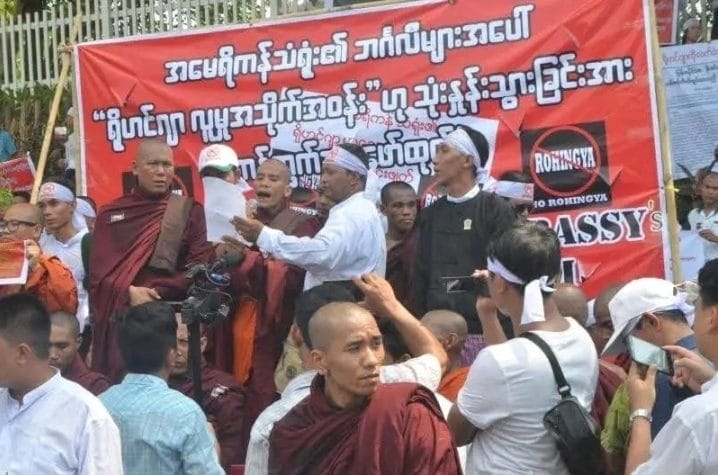Arakan News Agency
At the first-ever high-level United Nations conference addressing the Rohingya crisis, international voices rose on Tuesday calling for protection and justice for the Rohingya, as well as for perpetrators of crimes against them to be held accountable before the International Criminal Court (ICC).
The conference was held with the primary objective of bringing the Rohingya issue back into the spotlight, attracting international attention, assessing the situation on the ground, and discussing specific timelines for implementing sustainable solutions to the crisis, including the voluntary and safe return of Rohingya refugees to their homeland in Arakan state in western Myanmar, where they were subjected to genocide by the Myanmar military in 2017 and where they continue to face abuses by the Arakan Buddhist militias (Arakan Army), which currently controls the state.
The General Assembly president Annalena Baerbock highlighted the immense hardships faced by Rohingya refugees in Bangladesh camps, “where they were forced to live after fleeing Myanmar carrying their children on their backs”. She stressed that Bangladesh cannot bear this burden alone.
She added that there are more than 3.5 million Rohingya inside Myanmar who are in dire need of humanitarian assistance, and that the 2025 humanitarian needs and response plan for Myanmar is only 12% funded. She noted that the international humanitarian response must match Rohingya’s remarkable resilience.

UN High Commissioner for Refugees Filippo Grandi described the Rohingya’s plight as “unique,” as they continue to face discrimination, denial of rights, and abuse while caught in the middle of multiple ethnic conflicts, facing the burning of their villages, exclusion from work and services, and the continued denial of their identity.
Grandi stressed that the humanitarian response remains chronically underfunded and that numerous risks continue to threaten refugees, including the deaths of children due to malnutrition or deaths at sea as the number of refugees making perilous sea journeys increases.
UN High Commissioner for Human Rights Volker Türk described life in Myanmar as perhaps “the worst ever” for the Rohingya and other minorities, saying this represents another dark chapter in a long history of persecution. He added that the elections planned by the Myanmar military cannot be free or fair because the stateless Rohingya will not be allowed to vote.

He continued by saying that he saw “profound despair” in the eyes of the women and girls he met in Rakhine State, emphasizing that the way out of this crisis lies in de-escalation, the protection of civilians, and access to humanitarian aid, not elections. He also emphasized that support for refugees in Bangladesh must continue, and that the situation in Myanmar must be referred to the ICC.
The solution begins with Myanmar
For his part, the Association of Southeast Asian Nations (ASEAN) Special Envoy to Myanmar, Tan Sri Osman Hashim, stated that Arakan state continues to bear the brunt of the conflict, which he said exacerbates a pre-2021 coup. He emphasized the need for comprehensive dialogue to find a peaceful solution to the crisis in Myanmar, calling for a change in the situation, an immediate cessation of violence, increased humanitarian funding, and the safe, voluntary, and dignified return of refugees.
Several countries have renewed their calls for urgent action to resolve the protracted Rohingya crisis, warning that the situation cannot be allowed to continue for decades to come. Bangladesh’s interim Prime Minister, Mohammad Yunus, stated that the Rohingya plight has been ongoing since the start of the genocide and that the crisis “began in Myanmar and its solution lies in Myanmar.” He warned that with aid declining; the only peaceful option remains to begin repatriating them.
Yunus also urged the international community to develop a practical roadmap for the safe and dignified return of refugees and to exert effective pressure on Myanmar to end persecution and achieve stability in Arakan state. He noted that his country is a “victim of the crisis” and is forced to bear “huge financial, social, and environmental costs.”
Indonesian Foreign Minister Sugiyono emphasized that the Rohingya tragedy is inseparable from the Myanmar crisis and that peace requires a comprehensive dialogue in line with ASEAN’s five-point plan. He added that “eight years of displacement is already a long time.” It should not turn into decades of despair.”
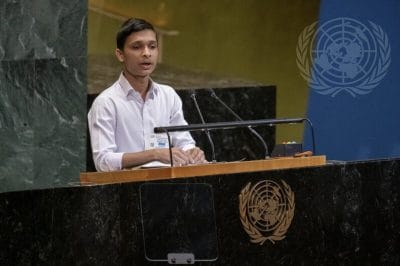
The Malaysian delegate described the meeting as “long overdue.” He added that attempts to erase the Rohingya identity and heritage violate international human rights law and must be rejected, calling for a sustainable solution that ensures a safe and dignified return. The Thai delegate emphasized that providing humanitarian assistance is crucial, but it is not a permanent solution. The collective goal must be the voluntary, safe, dignified, and sustainable return of the Rohingya.
The Polish delegate also expressed concern about the use of advanced technologies against civilians in Myanmar, urged member states to refrain from enabling the Myanmar military to launch attacks on civilians, and welcomed calls for a global embargo. The European Union delegate called for justice for the Rohingya, who deserve dignity, safe return, full citizenship, and equal rights.
On behalf of the Organization of Islamic Cooperation, the Turkish delegate condemned what he described as a deliberate and systematic strategy of ethnic cleansing against the Rohingya Muslims and emphasized that Myanmar must fully comply with the International Court of Justice rulings that require it. To prevent genocide and protect evidence, the international community must intensify diplomatic pressure, impose sanctions, and support Rohingya host countries.
The first session of the UN High-Level Conference on the Rohingya Crisis featured moving testimony from Rohingya activists who presented testimonies of systematic violations and ongoing suffering in Arakan state in western Myanmar. They emphasized that the genocide against the Rohingya did not end in 2017, and that they continue to be used as human shields as violence escalates.


